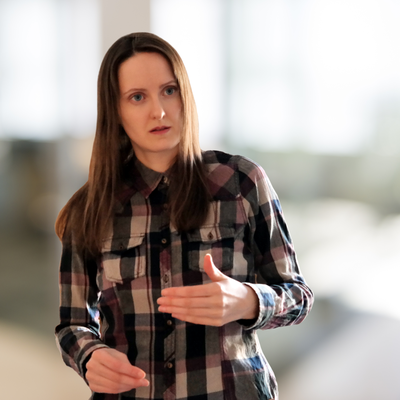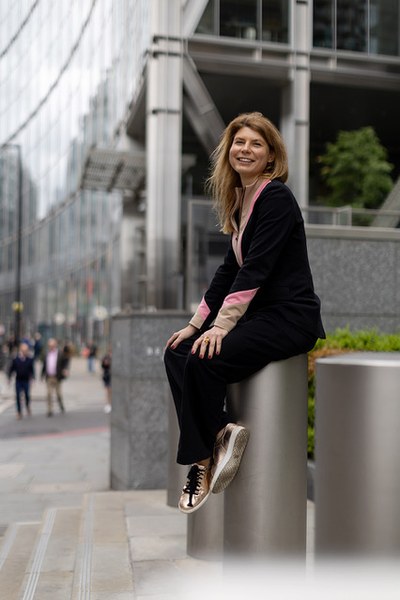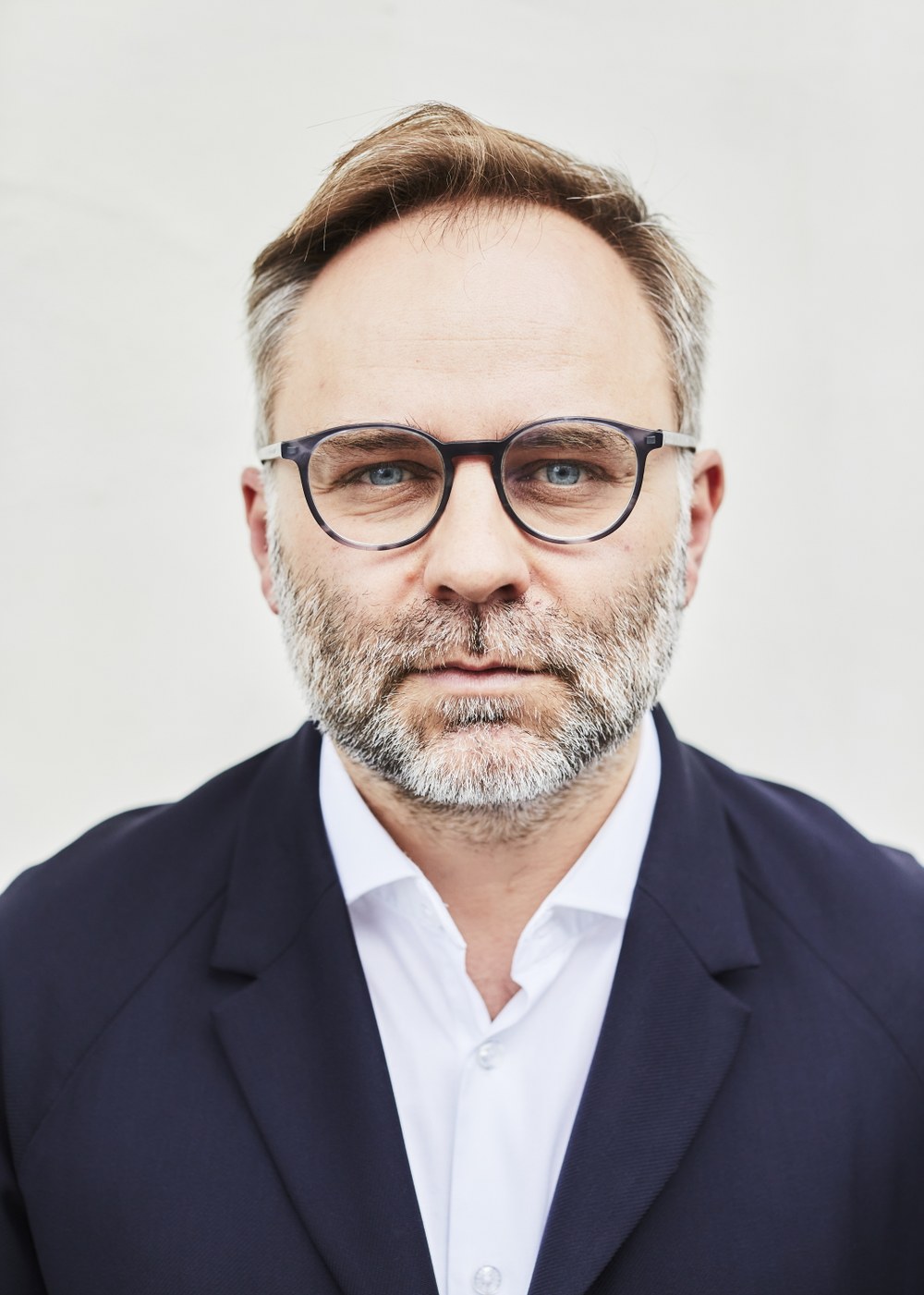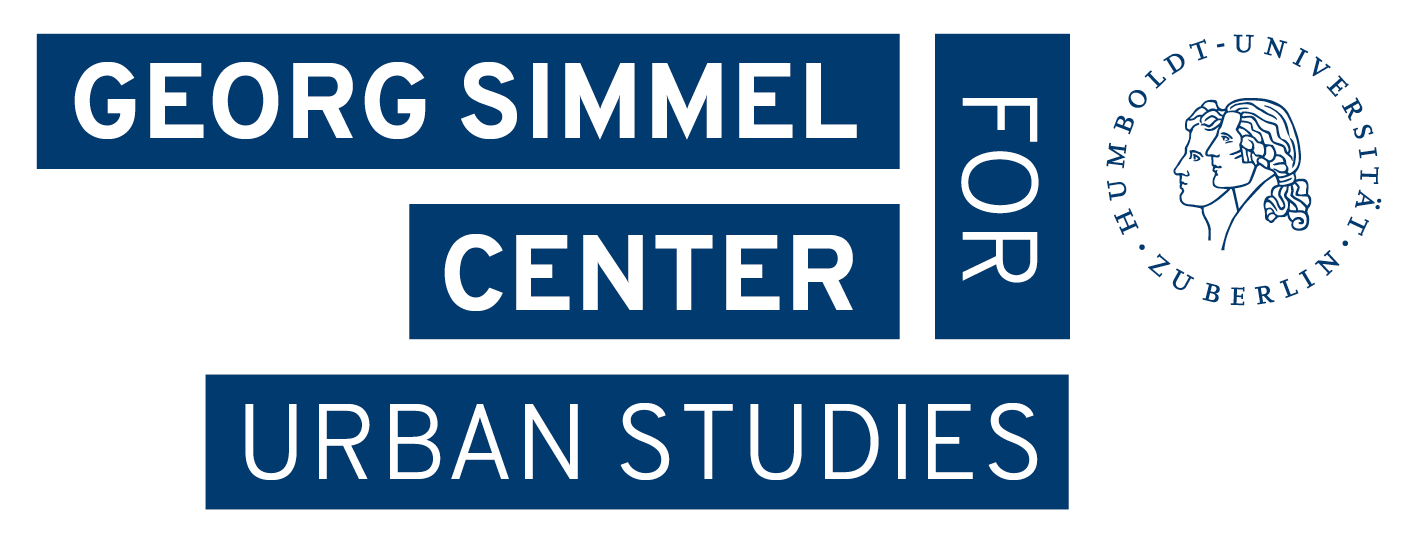Think and Drink
In cooperation with the Department of Urban Sociology our Think and Drink colloquium takes place every semester, at which national and international academics speak on various topics of urban research. All events this semester will take place on the ground floor of Universitätsstraße 3b, 10117 Berlin, Room 002
Summer Semester 2025
Monday, the 28th of April 2025, 18 o'clock
Katja Salomo
Social Science Center Berlin
Does Demographic Decline Lead to Democratic Deconsolidation?

One of the most significant social divisions with regard to voting behavior is the so-called urban-rural divide. This divide has been a persistent phenomenon in modern Western democracies, but has recently garnered increased attention from the fields of social and political science. This is due to the fact that rural areas have been shown to be conducive to the rise of far-right parties, leading to their representation in parliaments and, in some cases, governments in Europe and the USA. The previous assumption that the divide is an almost "god-given" state, meaning that conservative-minded citizens simply happen to reside in/move to rural areas and progressive ones in/to cities, does not provide a sufficient explanation for the rise of increasingly radical rural political cultures.
The presentation will illuminate the current theories that try to explain the phenomena beyond these selection effects. The emerging picture is that economic disparities between different settlement areas have been increasing in European countries since the 1980s, leading to demographic changes that not only contribute to further economic decline in the affected areas, but also affect most aspects of community life, from social connectedness and trust to local civil society and political representation. These impacts have contributed to the proliferation of radical ideologies and the surge in support for radical political parties in the affected regions. This phenomenon has the potential to engender the formation of political homogeneous areas where radical ideologies become increasingly entrenched within the mainstream.
Monday, the 5th of May 2025, 18 o'clock
Joanna Kusiak
University of Cambridge
Radically Legal: The Story of Deutsche Wohnen & Co. Enteignen and the Socialization of Corporate Landlords in Berlin

Hidden in the heart of the German constitution, a long-forgotten clause gave ordinary citizens the power to take back 240,000 homes from multi-billion-dollar corporations. In this talk, Joanna Kusiak presents her book Radically Legal: Berlin Constitutes the Future (available in open access), which tells the story of Deutsche Wohnen & Co. Enteignen—a groundbreaking grassroots movement that mobilized over a million Berliners to challenge the speculative housing market. By activating Article 15 of the Grundgesetz, they set out to expropriate and socialize housing previously privatized by corporate landlords. As the movement now prepares for its second (legislative) referendum, Kusiak explores the vision of urban housing as a democratically held commons and reveals how radically legal politics can strengthen democracy and revive the rule of law.
Monday, the 12th of May 2025, 18 o'clock
Kathrin Eitel
University of Zurich
Shifting Tides: Controversies and Material Realities Along Vietnam's Urban Flooding Problem

Cities worldwide face diverse climate challenges and respond in varied ways, even as universalizing efforts push for a common solution to the ‘urban problem.’ Using Ho Chi Minh City (HCMC) as an example, I explore how urban planning in a post-communist state is shaped by professionals and other key actors with divergent visions of urban life. These visions, informed by historical, hegemonic, and ideological influences, are mediated through “knowledge controversies” (Barry 2012) across time and space.
HCMC’s flooding issue, for instance, is shaped by past planning phases, citizen responsibilities, conflicting data interpretations, transnational climate programs, and more-than-human entities like water hyacinths and the city's projected sinking. I argue that historically and spatially broad expert collaborations influence how HCMC addresses high tides and floods, shaping its present and future urban fabric. Flood resilience strategies emerge not only from past knowledge controversies but also from everyday material interactions, such as with the colonial-era sewage system. Ultimately, urban dwellers and non-human actors challenge dominant knowledge modes, redefining legitimate expertise and the value of expert infrastructures.
Monday, the 26th of May 2025, 18 o'clock
Deniz Yonucu
Newcastle University
Practicing Abolition: Experiments with Radical Urban Democracy in Turkey and Northern Kurdistan

This presentation examines the historical and contemporary practices of abolitionist world-building in urban contexts, focusing on experiments with direct democratic local governance in Istanbul's racialized working-class neighbourhoods during the 1970s and in various cities of Northern Kurdistan (Southeast Turkey) in the 2010s. Rather than viewing abolition as a top-down initiative, I argue that it has been actively practiced and experimented with by colonized, racialized, and Indigenous populations in various parts of the world who experience the state as a life-threatening force, a source of insecurity instead of safety. I will illustrate how Turkey's racialized Alevi and Kurdish communities, drawing on centuries of archives of oppression and resistance, engage in abolitionist practices, envisioning a more just future. However, these practices are primary targets of Turkish counterinsurgency policies, which aim not only to suppress dissenting and racialized populations but also to undermine their struggles’ transformative and liberatory potentials by creating conditions for perpetual urban conflict.
Monday, the 2nd of June 2025, 18 o'clock
Marcos Lopes Campos
Humboldt University of Berlin, Brazilian Center for Analysis and Planning
Speculations on the Ruination of Public Transportation in Rio De Janeiro

The COVID-19 pandemic caused a dramatic decline in passenger numbers and a surge in train cable thefts, significantly undermining the financial stability of Rio de Janeiro’s privatized railroad system and exacerbating service failures. In this presentation, I ethnographically explore the material and discursive practices surrounding ridership data and the plundering of the railroad to speculate on the system’s uncertain future and examine the productivity of ruination under “extreme” circumstances. These disruptions fractured the long-term formal relationship between the state and Rio’s train concessionaire, triggering a wave of legal and bureaucratic maneuvers that redefined the crisis’s contractual implications. Through technopolitical engagements with numerical data, graphic artifacts, and bureaucratic paperwork, the pandemic was temporally framed in urban governance via provisional fixes and temporary formal arrangements that continually postponed long-term solutions. The concessionaire’s portrayal of illegal plunder as a threat to accumulation and repair shaped the boundaries of (il)legality and responsibility in the process of ruination, while pressuring the state for price hikes and compensation. Moreover, quantifications, materials, audiovisual records, and narratives about thieves, vandals, fare evaders, and the financial repercussions of urban violence sparked controversies over data validity, blurring the lines between operational failures, reduced maintenance, deliberate service cuts, theft, criminal control of stations, shootouts, and vandalism. As incarceration and the fortification of train infrastructure emerged as proposed solutions to the crisis, ruination did not unfold as mere suspension but as an aporia – an ongoing state of indeterminacy. Ultimately, this converging accommodation of “extreme events” intensified infrastructural violence by ambiguously redistributing pandemic-related costs onto passengers while prolonging the affective toll of ruination on train workers.
Monday, the 23rd of June 2025, 18 o'clock
Kacper Pobłocki
University of Warsaw
Coeval Temporalities: Why 1989 is no Watershed in Poland's Recent History

Contrary to popular belief (and the bulk of scholarly literature), the annus mirabilis of 1989 does not constitute a watershed in Poland’s recent history. This becomes apparent if we shift our focus from the supposed “transition” from one political system (communism) to another (democratic capitalism) to the real, tangible socio-economic forces at play. When we examine the dynamics of Poland’s urbanization and industrialization within a global context, a different picture emerges—one in which the Global East is not “behind” the West but fundamentally coeval with it. In this talk, I will describe these alternative temporalities and focus on two key moments that are crucial for understanding the processes still shaping Eastern Europe: the rapid industrialization and urbanization during the Long Sixties (1956–1980), and a similar period following 2004—the year Poland joined the European Union and became part of a new economic system whose center of gravity lies in China. Thus, shifting our focus away from 1989 allows for a more profound understanding of developments in Polish cities and how these local transformations are embedded within broader global shifts.
Monday, the 30th of June 2025, 18 o'clock
Michele Lancione
Polytechnic University of Turin
The Impossible Possibility of 'Home'

What does it mean to be at 'home', when 'home' is the expression of structural forms of violence, at the intersection of anthropocentrism, patriarchy, heteronormativity and racial capitalism? As the COVID-19 pandemic showed, home can be read as a juncture where many of the inequalities of our time come and are held together structurally; yet, at the same time, home maintains an attractive lure to itself, as a place one is called to defend or to work toward, in order to be freed from subjections that seem to render home impossible in the first place. In this talk, my aim is to stay close to this only apparent contradiction, which I would like to name the “impossible possibility of home.” With this notion, I interpret the unjust and violent foundations of home not as opposite to, but as foundational to, its capacity to allude to one’s own betterment in terms of belonging, security, and care. This means to say that the lure of home as a space of belonging is emerging from the foundations of home itself, rather than being a means toward salvation from its violence. The impossible possibility of home lies in home’s capacity to sell a diagram of liberation as a line of flight, a breakthrough from its unjust underpinnings, while in immanent, lived, and felt terms, that diagram is a very powerful function of those.
Monday, the 7th of July 2025, 18 o'clock
Christine Barwick-Gross and Students
Humboldt University of Berlin
Sensing Kreuzberg - Approaching Urban Diversity Through the Senses

In this T&D session, students will present the projects they have carried out in the context of a 'project seminar' at the Social Science Institute, on the topic 'Sensing urban diversity'. As Simmel has already argued, the city is a place full of sensory input and sensory stimuli that the urban population cannot escape. However, urban scholars – just as social scientists in general – still rely primarily on the visual: they ‘see’ the city, but rarely listen, smell, taste, or touch it. However, these other senses, particularly sound and smell, are as relevant for the experience of urban life, for a sense of identity and belonging, and for processes of othering and the (re-)production of urban inequality. The city is thus a prime place to study how the sensory impacts people’s experiences, and how people construct, reproduce, or challenge and transcend symbolic and social boundaries through the senses. As Feld (cited in Borer 2013, 966) argues: “as place is sensed, senses are placed; as places make sense, senses make place”. Zooming in on the highly diverse Berlin disctric of Kreuzberg and its micro neighborhoods (Kieze), the students' works highlight the role of the senses for feelings of home and belonging, for the construction of feelings of security, and for processes of boundary drawings and crossings. Together, the students' projects highlight the advantage of using sensuous methods and epistemologies, that transcend the focus on the visual and the production of text.
Monday, the 14th of July 2025, 18 o'clock
Susan Parnell
University of Bristol, University of Cape Town
Cities Rethought: A New Urban Disposition

In a world of disruptions and seemingly endless complexity, cities have become - perhaps more than ever - central to thinking about the future of humanity. Yet rarely has the study of cities been more fragmented among different silos of expertise, diverse genres of scholarship, and widening chasms between theory and practice. How can we do better?
In their new book Cities Rethought: A New Urban Disposition Sue Parnell and her colleagues Gautam Bhan, Michael Keith and Edgar Pieterse suggests that we need to remake the way we see and know cities in order to rethink how we act and intervene within them. To this end, they propose the contours of a new urban disposition. This disposition, articulated through its normative, analytical, and operational elements, offers an opportunity for scholars, practitioners, and citizens alike to approach the complexity of cities anew, and find ways to rethink both scholarly analyses as well as modes of practice.
